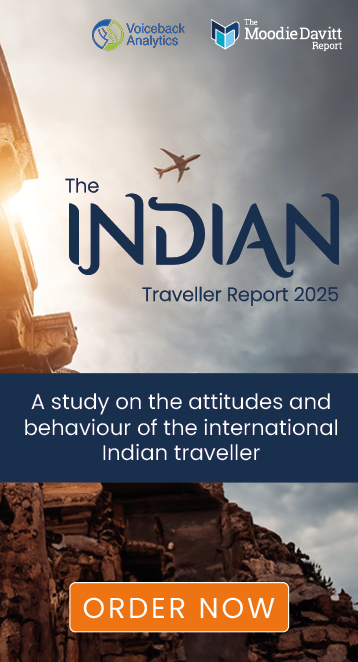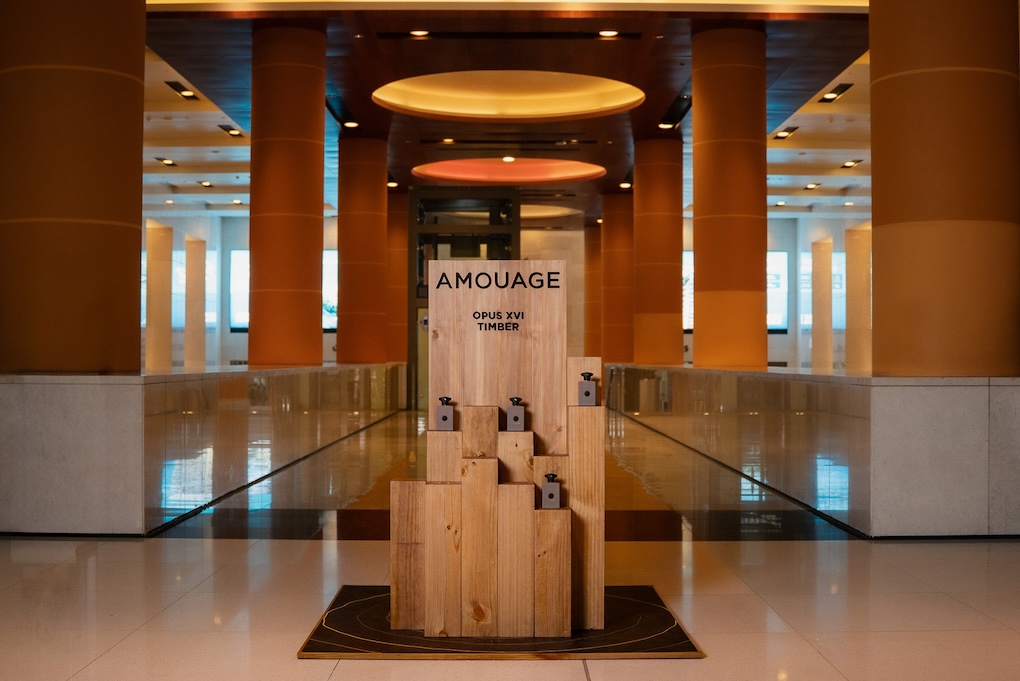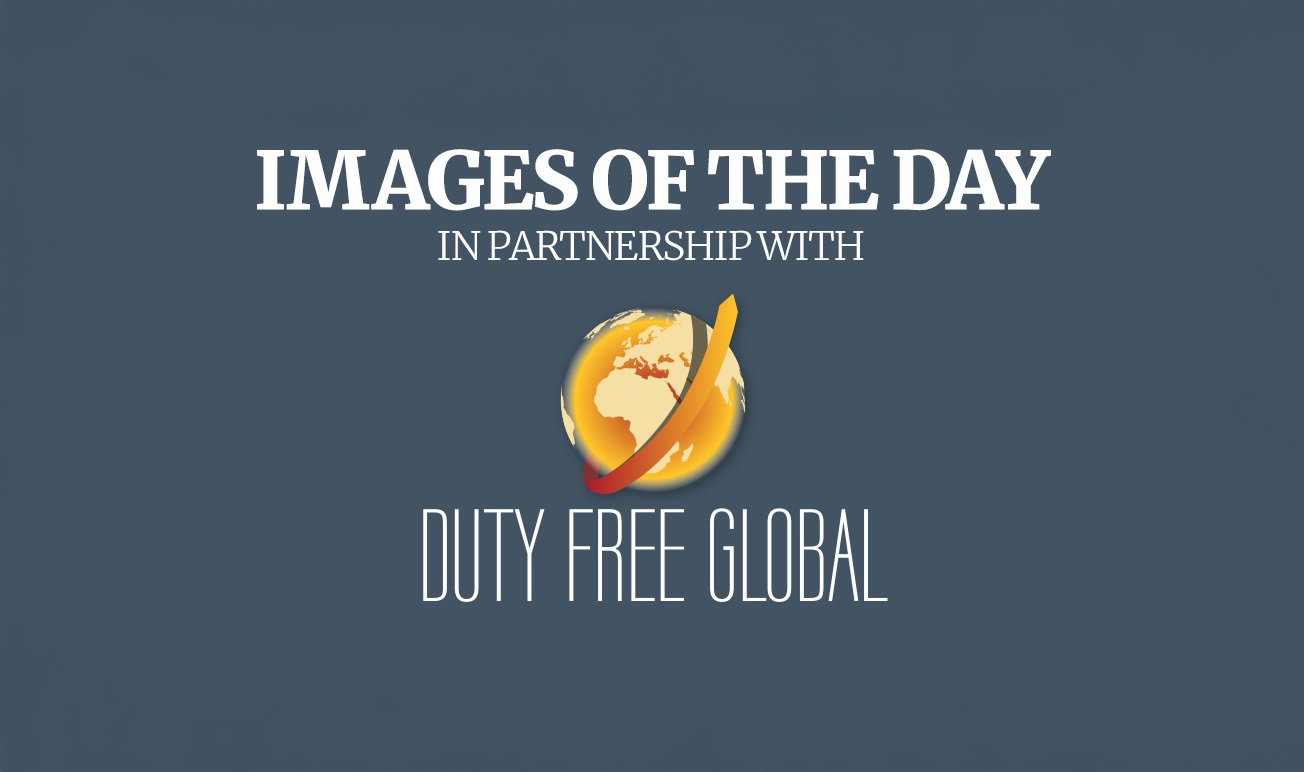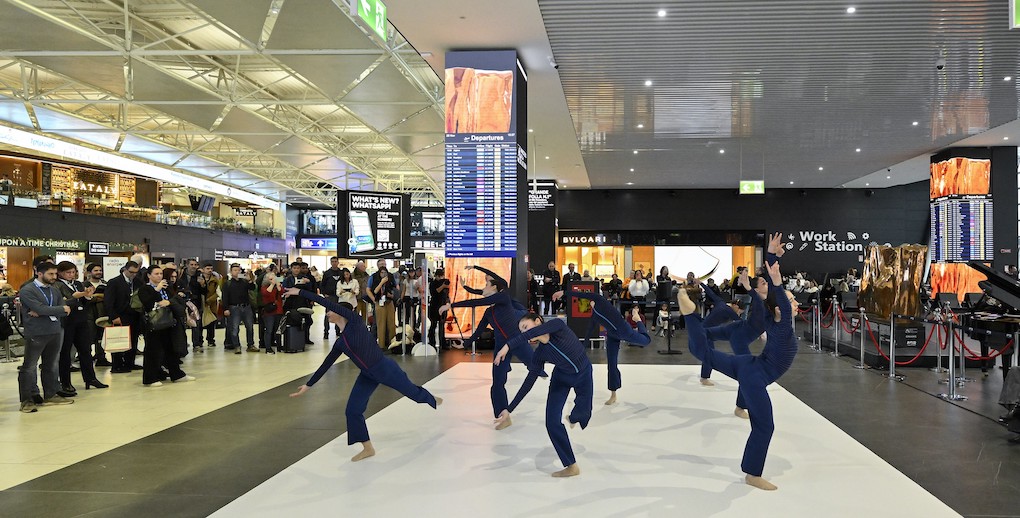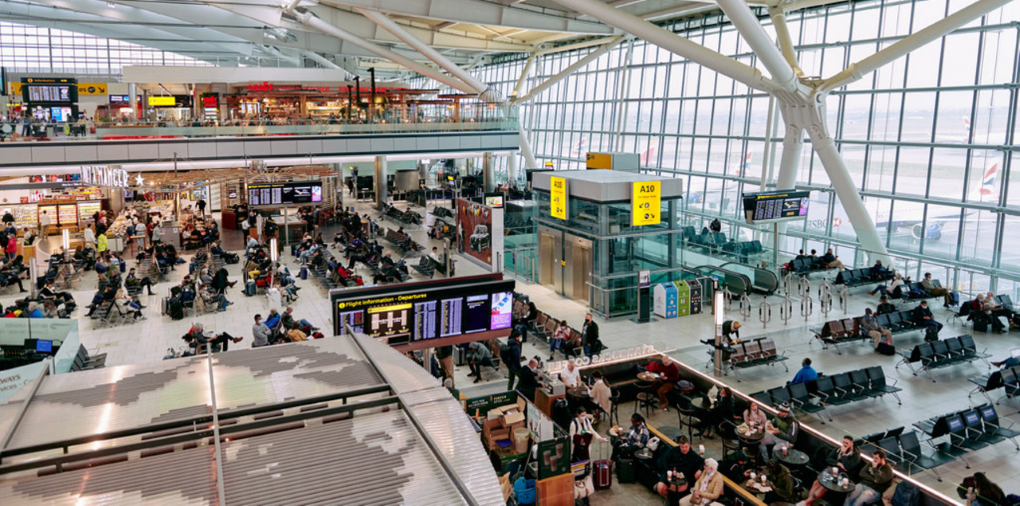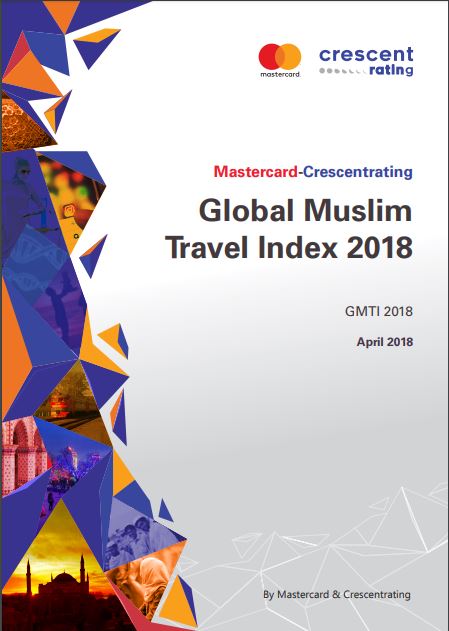
INTERNATIONAL. Malaysia and Singapore have been revealed as the top destinations in the US$220 billion global Muslim travel market.
The Mastercard-CrescentRating Global Muslim Travel Index (GMTI) 2018, which covers 130 destinations, saw Malaysia retain the top spot in the annual rankings.
Indonesia built on its year-on-year growth by moving up to joint second with the UAE in the overall rankings. Turkey and Saudi Arabia round out the top five.
A number of non-Organisation of Islamic Cooperation (OIC) destinations in Asia moved up the rankings this year, which the report said was the result of their concerted effort to adapt their services to cater to and attract the Muslim travel market.
Singapore retained top spot among non-OIC destination markets, ahead of Thailand and the UK, while Japan and Taiwan moved into the top five for the first time since the GMTI was released.
Mastercard and CrescentRating said the research confirmed the Muslim travel market is on course to continue its fast-paced growth to reach US$220 billion in 2020. It is expected to grow a further US$80 billion to hit US$300 billion by 2026.
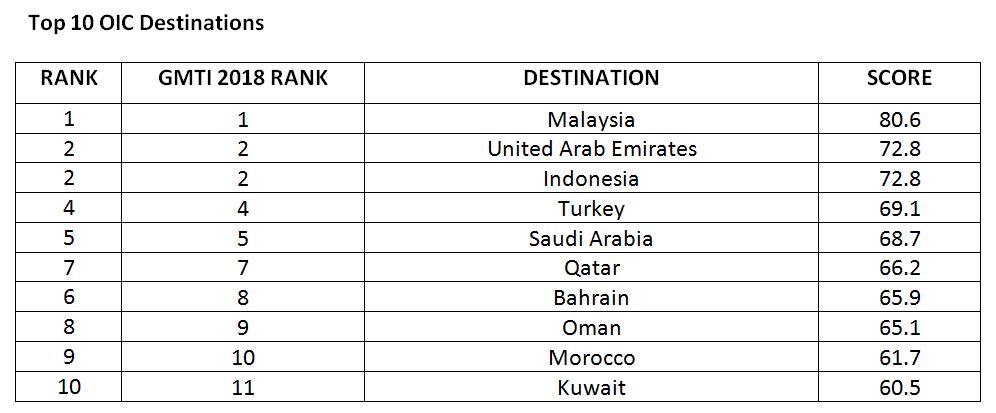
Click on image to enlarge
In 2017, there were an estimated 131 million Muslim visitor arrivals globally, up from 121 million in 2016. This is forecasted to grow to 156 million visitors by 2020, representing 10% of the travel segment.
“We are now starting to see the impact of investment and commitment by destinations across the world into the Muslim travel market which is reaping rewards including a real shift in the rankings,” commented CrescentRating (and HalalTrip) CEO Fazal Bahardeen.
“The concerted efforts of destinations such as Indonesia, Singapore, Japan and Taiwan using data and insights from the previous GMTI reports have to be commended as they are now closing the gap.
“This year we have revamped the GMTI criteria to better reflect the growth strategies implemented by destinations to welcome the Muslim travellers resulting in positive movement across the index. We have also released the ‘CrescentRating Growth & Innovation Model’ to help destinations practically use this report to strategise growth and innovation for this fast paced travel segment.”
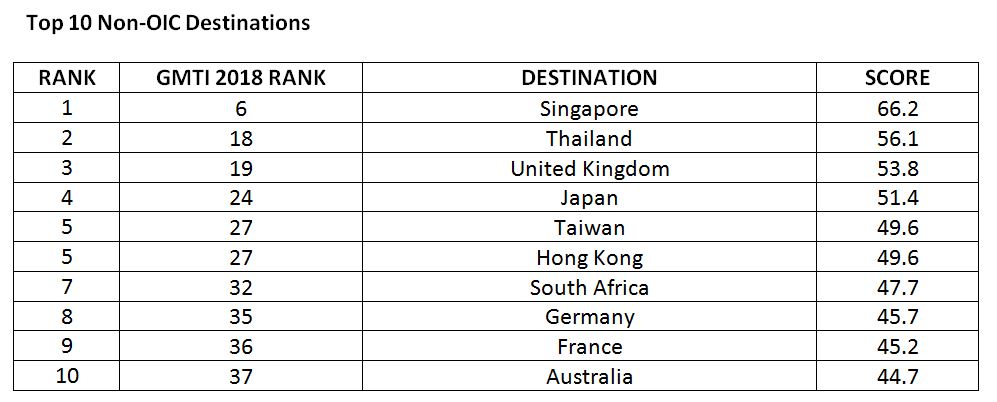
Click on image to enlarge
Malaysia’s index score was 80.6, followed by UAE and Indonesia at 72.8. Singapore, the highest scoring non-OIC destination, scored 66.2. Taiwan and Japan have continued to improve their overall ranking. Asia is the leading region in the world for attracting Muslim visitors, followed by Europe.
“Many already successful destinations around the world are looking to diversify their visitor base to maintain tourist growth rates in today’s increasingly competitive travel market,” said Mastercard Division President Indonesia, Malaysia & Brunei Safdar Khan.
“The fast growing Muslim travel segment is an opportunity in plain sight but in order to benefit from it, it is crucial to understand the needs and preferences of Muslim travellers and how to adapt and tailor products and services for them.”
Unlocking the potential of the next generation of Muslim travellers will be key, as discussed in the Mastercard-HalalTrip Muslim Millennial Travel Report 2017.
Mastercard and CrescentRating estimate that the Association of Southeast Asian Nations (ASEAN) region will welcome over 18 million Muslim visitor arrivals by 2020, representing close to 15% of the visitor arrivals to the region.
“Based on our index, Indonesia continues to strengthen its position as one of the top halal destinations as a result of the support from the Indonesian Ministry of Tourism,” said Khan. “They have done a wonderful job in enhancing the tourism landscape of Indonesia, improving the tourism infrastructure, and promoting the ‘Wonderful Indonesia’ campaign overseas.”
The full GMTI report is available here.








